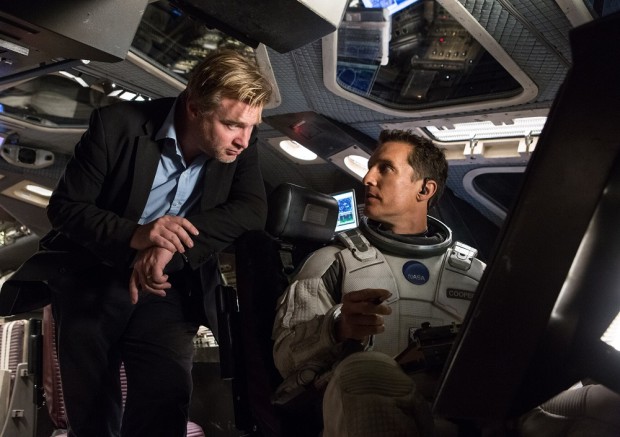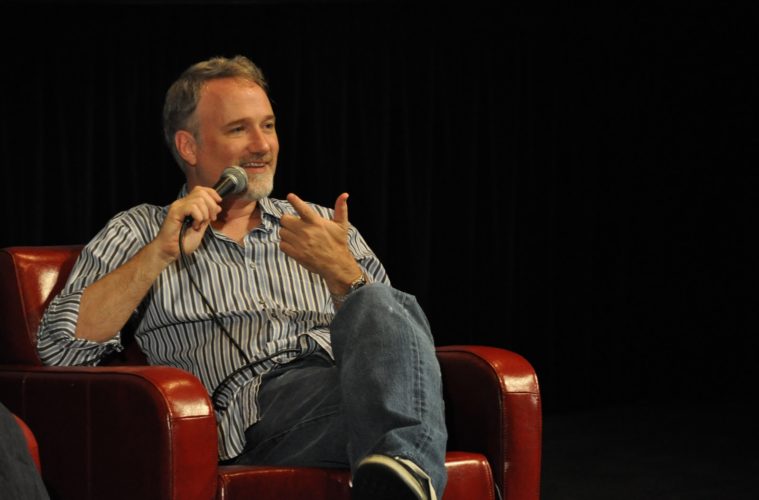
While (some) filmmakers will certainly open up to journalists, there’s the sense that they are more willing to greater discuss their process with a fellow colleague in the field. The smart folks over at Empire went all-out with this idea and recruited Spectre director Sam Mendes to reach out to a wide array of friends to get their tidbits when it comes to their specific filmmaking process.
Including Steven Spielberg, David Fincher, Christopher Nolan, Ang Lee, Edgar Wright, Alfonso Cuarón, Joe Wright, Paul Greengrass, Joss Whedon, Steven Soderbergh, Susanne Bier, Alexander Payne, George Clooney, and more, the full Q&A’s are in Empire’s latest issue, but we’ve selected some of the best responses below for your viewing pleasure. Let us know your favorites answers in the comments and pick up the full issue here.
HAVE YOU EVER WALKED OFF A SET IN A TEMPER?
Ang Lee: I only Hulked out once.
Alfonso Cuarón: Yes, only to come back feeling very stupid.
Joss Whedon: Nope. I’ve lost my temper, but not impressively. I’ve walked out of a VFX review in a quiet, blind rage, but only for a minute or so ’til I could see again.
Christopher Nolan: I once tried, but nobody seemed to notice, so I came back.
Steven Soderbergh: No, but I did walk ON to a set with a temper once when an actor showed up late two days in a row.
George Clooney: No. The reason is because eventually you have to walk back on, and that would be too humiliating.
WHAT IS THE MOST COMMON PHRASE YOU USE ON SET?
Payne: To the actors, “Great, now faster.” To the crew members, “If this were easy, I would have hired a relative.”
Nolan: “Moving on.”
Fincher: “Shut the fuck up, please.”
MUSIC OR NO MUSIC ON SET?
Spielberg: I’ve occasionally played music on set during silent scenes. For the last scenes between David and his mother in A.I., I played Morricone’s Cinema Paradiso.
Edgar Wright: Yes, sometimes music to psych people up! On Scott Pilgrim we would blast songs constantly. And on World’s End the actors would have songs in their earwigs, so they could all walk in time to The Doors. I also remember playing a Teenage Fanclub intro from my laptop shooting a close-up of Paddy Considine pining for Rosamund Pike. It’s fun to score the ends of scenes too, give them finality.
Fincher: No music, unless it’s a club scene, in which case we will play music earsplittingly loud so that the actors might speak to the level of the expected ambience.
Joe Wright: Always music and all the time. I have my set rigged with the biggest sound system possible and have a mini jack for my iPod attached to my director’s chair. I find playing music is a very direct way to communicate with actors and the crew, especially those crew members who are on the periphery of the set. I like dancing on set too, it’s a good way to release tension.

WHAT ARE YOUR ON-SET RULES FOR THE CREW, IF ANY?
Fincher: We are not here to witness, but to participate.
Nolan: No phones. No phones. No phones.
Edgar Wright: I have my own monitor away from video village that is close to the camera. And I don’t like anyone standing behind me talking. So my main request every hour or so is to ask the AD to get the talkers away from me. No chit-chat about the football in my earshot please.
Cuarón: Any good crew follows the unwritten rules of filmmaking (not talking while the camera is rolling, staying out of the actors’ eye-line etc.) but every director has different procedures. I like to stage the scene in an empty set, with only Chivo (DP Emmanuel Lubezki) and my AD around, and only bring in the heads of departments when I’m happy with the staging.
WHAT’S THE MOST TAKES YOU’VE EVER DONE?
Spielberg: I did 50 takes on Robert Shaw assembling the Greener Gun on Jaws. The shark wasn’t working, but we all wanted to so I just kept shooting to make the production report look like we were accomplishing something and to keep cast and crew from going crazy from boredom. It was a strategic indulgence.
Fincher: 107.
Nolan: I never pay attention to the number of takes.
Coppola: I can’t remember, nothing too crazy, because we never have that much time in the schedule.
HOW MANY CUPS OF COFFEE A DAY?
Spielberg: I never had a cup of coffee in my life, but I have at least a dozen cups of mint tea a day.
Nolan: So many that I was forced to give it up and take up tea after Insomnia.
Soderbergh: Never had a cup of coffee in my life. Dr Pepper is my caffeine delivery system of choice.
WHAT’S YOUR BEST-EVER DAY ON SET?
Clooney: Watching David Strathairn do a three-page monologue in one take on Good Night, And Good Luck.
Fincher: When the plan goes totally awry, and something amazing happens…
Coppola: When Bill Murray is there.
Nolan: The last.

REAL EXPLOSION OR CGI EXPLOSION?
Spielberg: Saving Private Ryan boasts 100 per cent practical explosions.
Payne: Never done an explosion, but I have had explosive diarrhea, and that was very, very real. Good thing I have my trailer.
Edgar Wright: Real. So much more fun to shoot. On Hot Fuzz we even blew up a miniature of the police station and I made sure I was there when they detonated. Too much fun.
Greengrass: Both. Augmented reality.
Michell: Huh?
WHAT’S THE MOST USEFUL ADVICE YOU RECEIVED FROM A FELLOW DIRECTOR?
Coppola: My dad told me, “Your movie’s never as good as the dailies and never as bad as the rough cut.”
Nolan: “Open the kimono” — Soderbergh telling me not to hide my process from the studio.
Whedon: James Cameron told me, “You can hire the 50 best people in the business, people you love and trust and respect. You all look at the monitor — you’re gonna be the only one who sees what’s wrong.”
Fincher: Scorsese once told me, “The things you do poorly are as much a part of your style as the things you do well…” Which was totally true, and oddly reassuring.
WHY DIDN’T YOU JUST BECOME AN ACCOUNTANT?
Fincher: I’m not good enough with “people” to do that kind of work.
Payne: Piss off.


